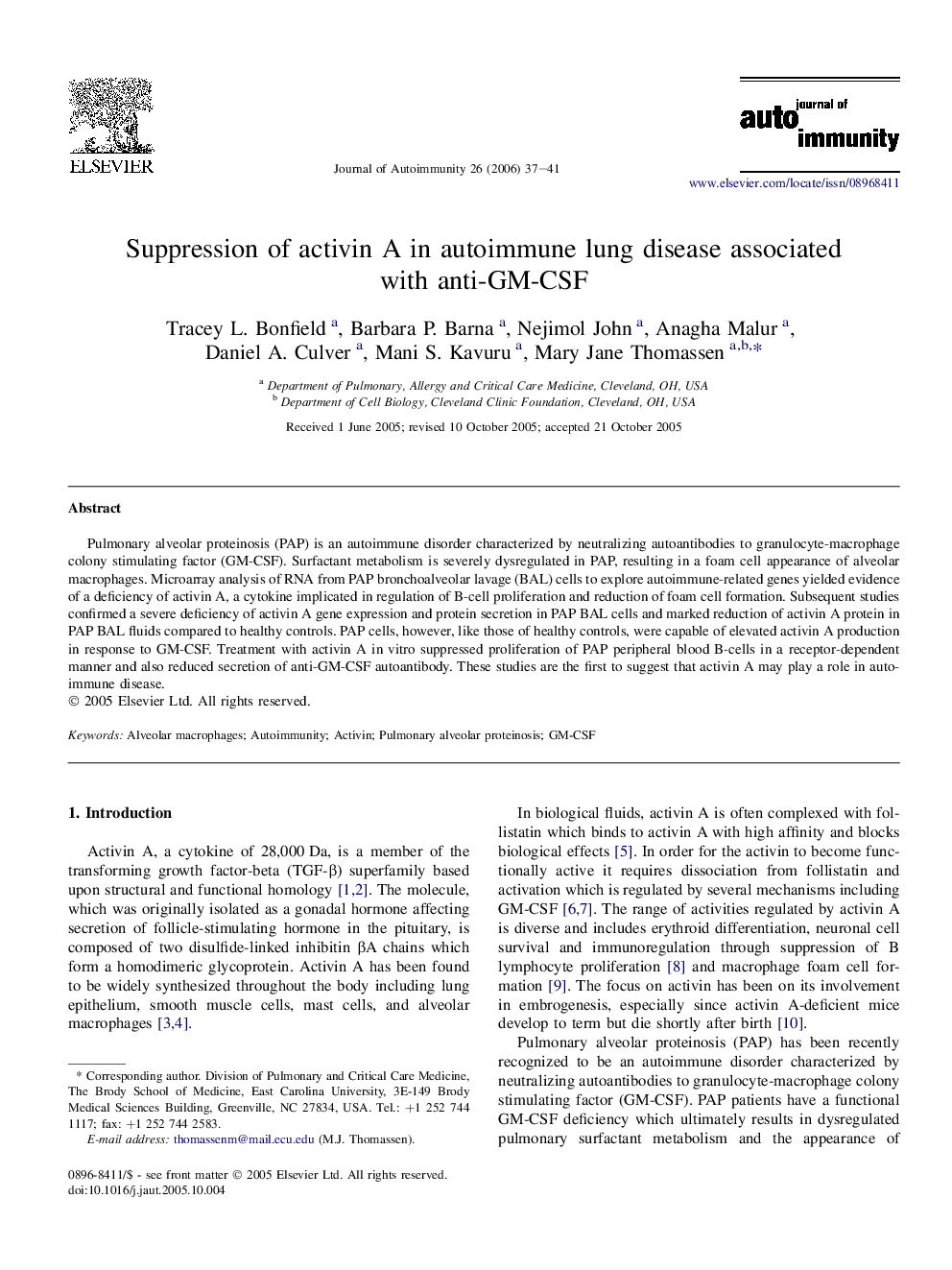| Article ID | Journal | Published Year | Pages | File Type |
|---|---|---|---|---|
| 3368445 | Journal of Autoimmunity | 2006 | 5 Pages |
Pulmonary alveolar proteinosis (PAP) is an autoimmune disorder characterized by neutralizing autoantibodies to granulocyte-macrophage colony stimulating factor (GM-CSF). Surfactant metabolism is severely dysregulated in PAP, resulting in a foam cell appearance of alveolar macrophages. Microarray analysis of RNA from PAP bronchoalveolar lavage (BAL) cells to explore autoimmune-related genes yielded evidence of a deficiency of activin A, a cytokine implicated in regulation of B-cell proliferation and reduction of foam cell formation. Subsequent studies confirmed a severe deficiency of activin A gene expression and protein secretion in PAP BAL cells and marked reduction of activin A protein in PAP BAL fluids compared to healthy controls. PAP cells, however, like those of healthy controls, were capable of elevated activin A production in response to GM-CSF. Treatment with activin A in vitro suppressed proliferation of PAP peripheral blood B-cells in a receptor-dependent manner and also reduced secretion of anti-GM-CSF autoantibody. These studies are the first to suggest that activin A may play a role in autoimmune disease.
